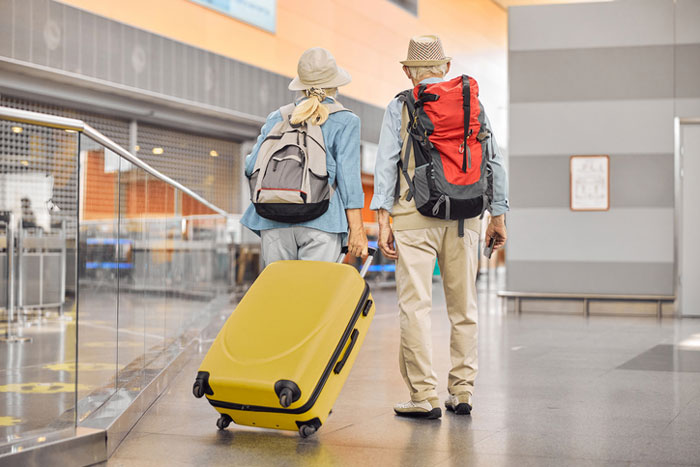As COVID restrictions around the world have been lifted in the past few months, many people have once again begun traveling internationally. While there is nothing quite like seeing the Eiffel Tower or the Taj Mahal for the first time in real life, traveling to foreign countries can wreak havoc on your digestive system. From spending hours cramped up in airplanes to trying a variety of new foods, your stomach may not quite know what is happening to it!
However, this doesn’t mean you have to spend your entire vacation playing it “safe”. In fact, with just a few easy tips and tricks, you can get your GI tract back on track in no time!
#1 Be careful with water
Water is one of the biggest culprits when it comes to experiencing an upset stomach while traveling. Throughout many parts of the world, it is not possible to drink water directly from the tap and you should definitely stick to bottled water. Depending on where you are, you may also want to shy away from ice and freshly washed fruits and vegetables. If your stomach is very sensitive, you may even want to spend at least the first few days of your trip using bottled water when you brush your teeth.
#2 Follow a bland diet.
If you begin experiencing stomach pain or discomfort that you think is related to something you ate or drink, it is a good idea to switch to a bland diet until your condition improves. One of the most common diets to follow is the BRAT diet which consists of bananas, rice, applesauce, and toast. These foods tend to be very gentle on your gastrointestinal tract and although they won’t usually help reduce nausea, they will help you get the nutrients your body needs to recover which will help you start feeling much better.
#3 Understand the difference between food sensitivity and food poisoning.
It is common to experience food sensitivity when traveling and this could lead to short-term diarrhea, nausea, or gas. Luckily, this should pass on its own within a few hours. Food poisoning, on the other hand, can last several days and is usually accompanied by frequent vomiting and/or diarrhea.
If this lasts only a few days, it is not usually something to be concerned about. However, if you have diarrhea that continues for more than three or four days, you run the risk of dehydration. It is very important that you start hydrating and you should try to drink as much water as possible. You may also want to try taking electrolytes which will help replenish the essential vitamins and minerals that you are losing.
Keep a close eye on your symptoms and if diarrhea lasts more than four days or so, you should go and see a doctor. General practitioners in many countries where food-related gastrointestinal problems are common are usually able to identify the cause of your discomfort quickly and prescribe the appropriate treatment.
#4 Avoid taking Imodium.
If possible, try to avoid taking medicine like Imodium which is designed to stop diarrhea as it can lead to constipation which can cause additional irritation. If you choose to take some, keep in mind that it also only treats the symptoms of diarrhea rather than treating the cause of it. While it is generally fine to take it for a day or two, try to avoid taking it longer than that.
If you have recently returned from a vacation overseas but can’t seem to recover from ongoing stomach problems, don’t hesitate to contact the specialists at Granite State Gastroenterology. They can help rule out any bigger issues and help get you on a treatment plan that works for you.

